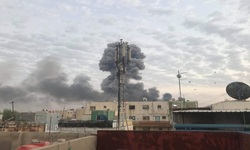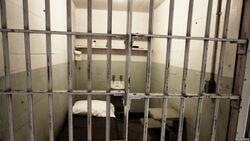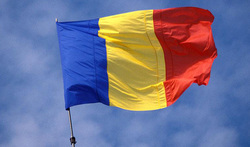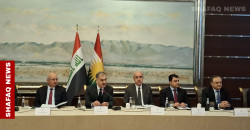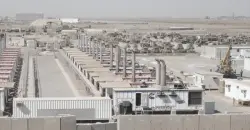The world has become Baghdad after the lockdown
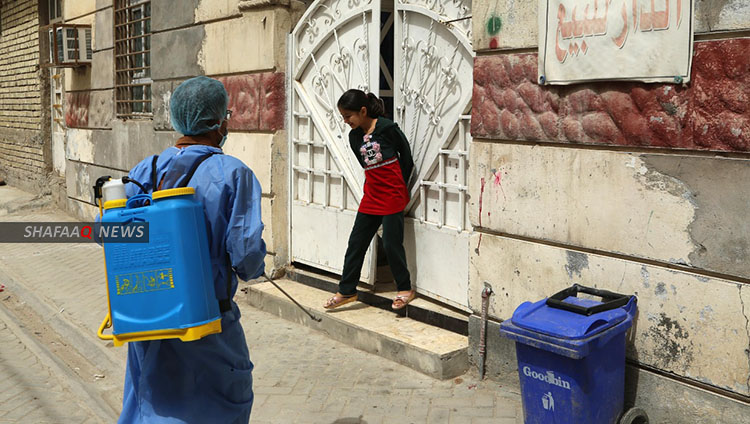
Shafaq News/ Lockdown. For most people, it probably wasn’t a very familiar concept. When the American tanks first rolled into Baghdad, I hadn’t heard of such strict curfews either. But now, as a 29-year-old Iraqi, I’m seeing events outside my window that feel like déjà vu, Mustafa Salim, An Iraqi Journalist wrote to Washington Post.
Lockdowns of a sort have shaped much of my life. They began in 2003 with the U.S.-led invasion, and the car bombs and other attacks across the country that followed meant having my movements restricted for part of every single day until I turned 24. In place of leading a normal teenage life, I walked past dead bodies in the street. I never stayed out late. As the world celebrated New Year’s Eve with fireworks, the only explosions I could remember here were the car bombs. It felt like we lived in darkness.
As the coronavirus spread throughout the world, the Iraqi government announced a new lockdown. It has felt strange to hear from people who are not Iraqi about how the strict restrictions they face have changed them or how these are making them realize things about themselves that they weren’t aware of before. Here in Iraq, we know the rhythm, and living this way again is reminding me of the old me. (Apart from the cooking. I’m now living alone, and without restaurants to feed me, I’m really realizing how bad I am.)
When I was growing up, my idea of a normal life meant sharing the same experiences as many people in developed countries. I didn’t realize that it would take a global crisis to make that happen. But here we are, all sharing the same fears of the virus, experiencing the same increase in calories, and hoping, together, that the pandemic will be over soon.
I know it may sound selfish, but there is something comforting about going through this crisis together. It’s good to feel that we are part of the world again. I am sitting home watching Netflix like any other human in the world. Finally, we have something in common.
When our lockdown was announced, no one panicked here. They went to markets and they knew what to get. It was as if someone simply moved the gearshift back to “adapt,” as they had done for 12 whole years previously. The biggest problem we had was that people underestimated the threat. For us, the term “curfew” makes you think of a security incident, and without violence in the streets, many thought that the same logic couldn’t possibly apply now.
But it didn’t take long for the streets to fall quiet. Barely anyone was allowed to leave home, and movement between provinces was sharply restricted. I used to love watching families relaxing on the green banks of the Tigris River. They’re all gone now. Malls and restaurants have been shuttered. Social media is full of people live-streaming from home. Only now have restrictions been eased slightly, but no one knows for how long.
Of course, there are differences between this lockdown and the others we’ve experienced. After the invasion, the country had only a few hours of electricity a day, even when temperatures hit 120 degrees. We didn’t have social media. There were long hours when our old cellphones barely had any network coverage, and then we turned that frustration into a game: The first person to make a phone call in fewer than five tries was the winner.
The invasion turned our world upside down and sparked a sectarian war. As we stayed inside our homes, the car bombs went off daily. At first we’d describe the days as “bloody Thursday,” or “bloody Sunday.” Then, in the end, all the days became bloody. Stuck indoors, I’d watch foreign movies and wish I had a life like those characters. It was hard to believe we lived on the same planet.
But living through what we did, I also know what it is like to feel freedom again. It was February 2015 when our curfew was finally lifted. With the Islamic State then in power across part of Iraq, it wasn’t that the country was suddenly free from suffering. But on that day in Baghdad, my colleague Liz Sly and I saw a musical band playing, we saw children dancing, and the air was full with the sound of car horns. Even as a journalist, I couldn’t put my feelings aside. I couldn’t stop smiling, and suddenly, time, for the first time, felt unlimited.
It had taken years for that curfew to be fully lifted. But bit by bit, it happened. War was over, the cafes and bars reopened, and Baghdad no longer spent its New Year’s Eve in darkness.
We will see that again.
